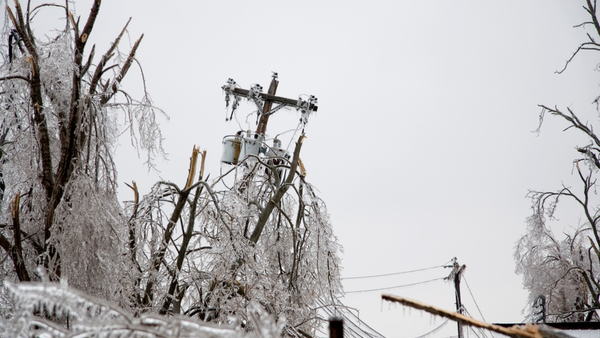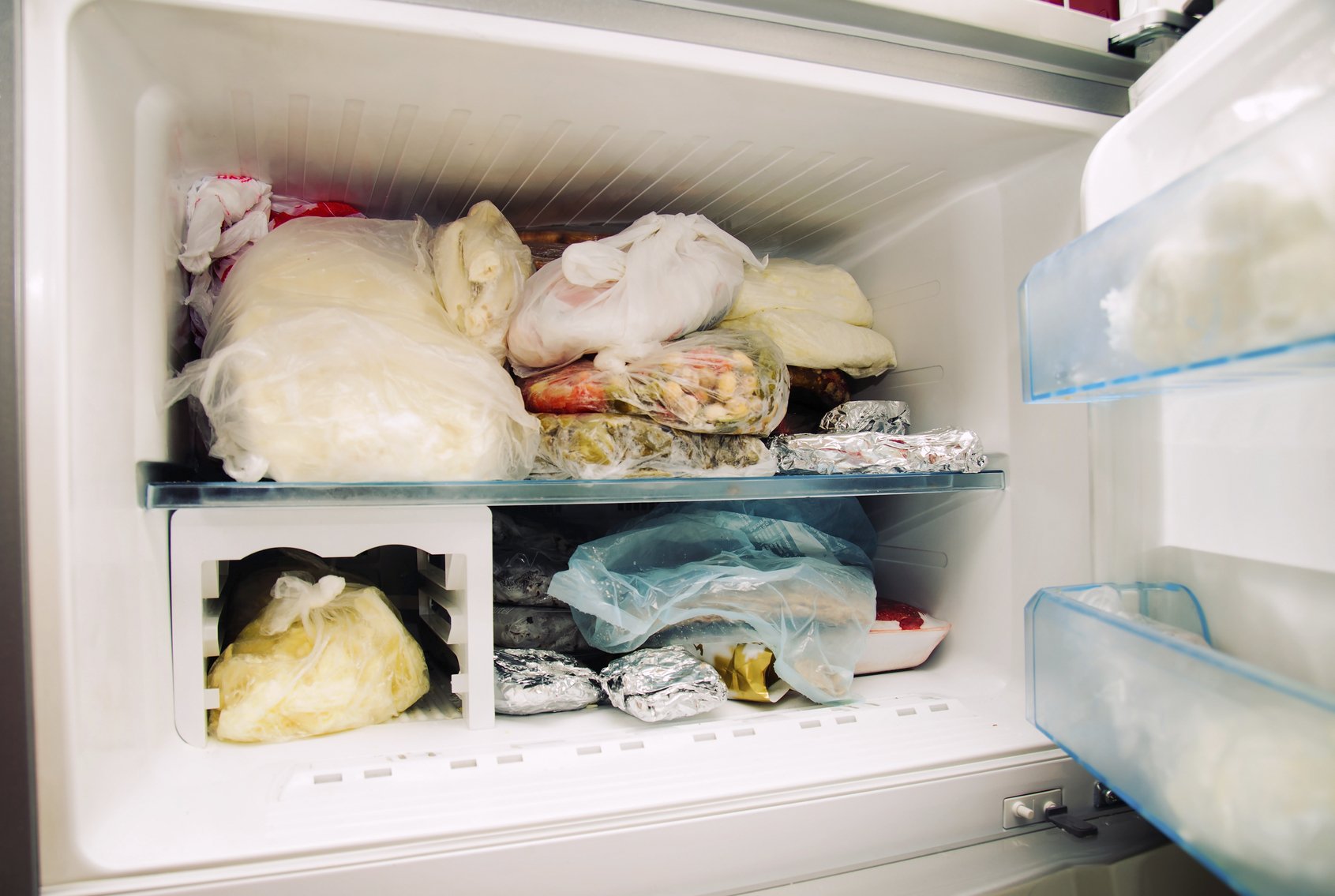Is insurance coverage on when the power goes off?
Coverage Q&A

Question: The AAIS Form 3 Ed 2.0 appears to exclude coverage for damage caused by a power surge, low power or brown out if the (Sudden and Accidental Damage from Artificially Generated Electrical Current) occurs with an off premise (Power Disruption).
The exception to the exclusion, (We do pay for direct loss that is otherwise covered… which occurs on the insured premises) would apply as follows. If an off premise power disruption caused a power surge that damaged a freezer, or heating system, the damage to the freezer or heating system would be excluded. The otherwise covered food loss or any resulting freeze damage would be covered.
Can you provide clarification?
Relevant policy sections:
Sudden and Accidental Damage from Artificially Generated Electrical Currents
— However, "we" do not pay for loss to tubes, transistors, and similar electronic components.
EXCLUSIONS THAT APPLY TO PROPERTY COVERAGES
1. "We" do not pay for loss if one or more of the following exclusions apply to the loss, regardless of other causes or events that contribute to or aggravate the loss, whether such causes or events act to produce the loss before, at the same time as, or after the excluded causes or events.
h. Power Disruption — "We" do not pay for loss which results from the disruption of power or other utility service, whether or not it is caused by a peril insured against, if the cause of the disruption is not on the "insured premises."
"We" do pay for direct loss that is otherwise covered by this policy which occurs on the "insured premises" as a result of the disruption of power.
— Pennsylvania Subscriber
Answer: Let's look at this one step at a time.
The first section you reference is listed under Coverage C, and applies to personal property damaged by artificially generated electrical currents. (Tubes, transistors and similar components are not covered.) The current must be artificially generated so it would include a power surge either on or off premises that damaged property.
Since tubes, transistors, and electronic components are not covered, coverage would apply to the nonelectrical components of the property. For example, the refrigerator received a power surge that shorted it out and caused a fire. The short to the electronics would not be covered as the electronics components are not covered, but the fire damage to the refrigerator door and sides would be covered.
Then we get to the exclusions, which has the standard anticoncurrent causation clause that eliminates coverage when two causes of loss are in play and one is an excluded loss and the other a covered loss.
Next, we must consider the power disruption exclusion, which falls under the anticoncurrent causation language. There is an exception to the exclusion, though, so that allows coverage even with the anticoncurrent causation clause. Therefore, if a transformer off premises is struck by a vehicle that damages the transformer, creating a disruption of power or a surge that damages the refrigerator, there is no coverage other than a direct loss that results from said disruption. Therefore, if the damage to the transformer shorts out the refrigerator and the refrigerator sets the carpet and sofa on fire, the refrigerator is not covered but the carpet and sofa are.
Lastly, since we're dealing with a refrigerator, you have Refrigerated Food Spoilage coverage under the Incidental Property Coverages. This pays for spoilage of food in a freezer or refrigerator caused by temperature change resulting from interruption of electricity to the refrigeration equipment caused by damage to the generating equipment, which would be the offsite transformer or onsite power lines, or mechanical or electrical breakdown of the equipment as long as the equipment is maintained in good working order. So if the power lines come down and the refrigerator loses power the loss of food is covered.
If the refrigerator malfunctions and the food is lost, there is also coverage as long as the refrigerator was maintained.
Property damage caused by a power surge
Question: Our insured had a laser machine inspected, and the error messages that appeared stated it was damaged by a power surge. There had been a storm that caused a loss of power, and the ensuing surge damaged the machine. But for the windstorm there would not have been a power failure or surge. We understand that there is no coverage for power surge or failure, but would proximate cause pick it up?
— Florida Subscriber
Answer: On the ISO CP 10 30, the exclusion for power surge falls under the anti-concurrent causation wording, which states, "Such loss or damage is excluded regardless of any other cause or event that contributes concurrently or in any sequence to the loss." So, the loss you describe would not be covered.

Some commercials policies allow for coverage after a power outage that results in spoiled refrigerator or freezer food. (Photo: iStock)
Coverage for damage caused by an off-site event
Question: Lightning struck a detached sign and power pole. The sign and pole fell on power lines, which in turn caused a power outage and surge at the insured premises. The insured is making a claim for damaged electronic business personal property items such as cash register, due to the power outage and surge.
We are contemplating whether there is coverage under CP 10 30 06 07, Utility Services exclusion.
Our initial opinion is that while there is an on-premises outage, the language regarding power surges in the exclusion may eliminate coverage for this loss.
— Colorado Subscriber
The language here does not specify an on-premises or off-premises failure, just a failure. Since the surge caused the damage to the electronics, the loss would not be covered unless the loss was caused by a resulting covered cause of loss. So, if the surge caused a fire that destroyed the cash register, that would be covered. But if the surge alone damaged the cash register, it would not.
What about fire damage and a windstorm policy?
Question: Our insured has a windstorm policy only. When Hurricane Wilma hit in October 2005, it took down a large tree in the insured's yard as well as the power line. Power was out throughout the area from October until November 9. When the power company restored the power, the house caught fire.We turned in a claim, but it was denied. We think that the proximate cause was the hurricane that took the tree and wire down; had this not occurred the power would not have had to be restored and the fire would not have occurred. The "power failure" exclusion says that any ensuing loss to property not otherwise excluded is covered, so we think the ensuing loss — the fire — is covered.
Please give us your opinion.
— Florida Subscriber
Answer: The Florida windstorm only policy promises to pay for "direct physical loss to property" caused by the perils insured against. But the only perils insured against are hurricane (other than flood, related storm surge, etc.), tropical storm, other windstorm (such as tornadoes) and hail.
The exclusion for power failure states that if power failure results in a peril insured against, that ensuing peril will be covered. However, because the policy covers only loss by windstorm, that ensuing peril would have to be windstorm. In any event, it appears the power loss occurred on, not off, premises.
Although not in the contract, the "outline of coverage" page included with the policy clearly states the policy "does not protect you against other perils such as fire or lightning."
The only possible approach the insured might take is to convince the windstorm property insurance corporation, which issued the policy, that he reasonably expected that all losses flowing from the hurricane — such as falling tree, power loss, restoration, and resulting fire — would be covered.
Power failure vs. power surge
Question: Our insured is covered under the building and personal property coverage form CP 00 10 with the special causes of loss form CP 10 30. There was a cessation of power off-premises that stopped operations, but caused no damage. However, when power was restored, a power surge did damage insured property. The insurer is denying the claim due to the power failure exclusion in the special causes of loss form.Would this exclusion apply to these facts?
— California Subscriber
Answer: The usual meaning of the term "failure," as
found in a standard dictionary, is "an omission of occurrence or
performance." Absent a specific definition of power failure in the
policy, it is this definition that must be applied. Therefore, any
damage caused by the cessation of power would qualify as damage caused
by a power failure; however, damage caused by a surge of power is not an
omission of occurrence or performance, and would not fall under the
power failure exclusion, properly applied.However, a Pennsylvania subscriber correctly points out that the adjuster could have relied on the "artificially generated power" exclusion further down in the form. Exclusion 2.a. eliminates coverage for damage caused by or resulting from artificially generated electric current... that disturbs electrical devices, appliances, or wires. However, if loss or damage by fire results, that damage is covered.



